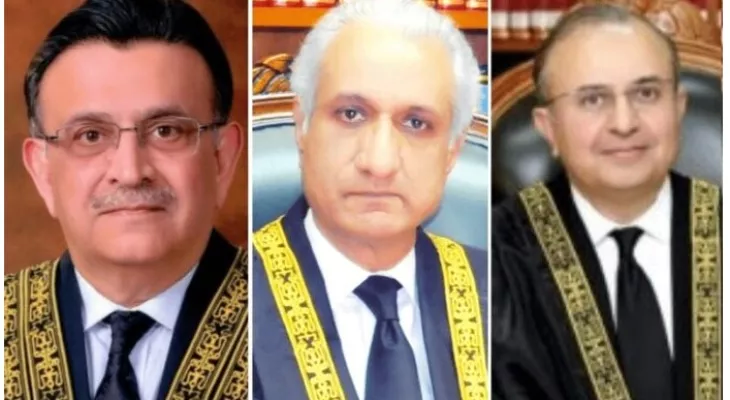SC Judges give interesting observations in NAB amendments case
Shares

Justice Mansoor Ali Shah of the Supreme Court has delivered a stark warning, emphasizing that the impending Parliament must take action to annul the recent NAB amendments; otherwise, it could lead to a complete breakdown of the entire system. This revelation was brought to light through a report. Justice Shah made these assertions during a pivotal hearing linked to a petition initiated by PTI Chairman Imran Khan, who is challenging the NAB amendments.
A specialized three-judge panel at the apex court, presided over by Chief Justice of Pakistan Justice Umar Ata Bandial and featuring Justice Ijazul Ahsan and Justice Mansoor Ali Shah, meticulously examined the case on the specified date. Within this judicial context, PTI Chairman's legal representative, Khawaja Haris, eloquently presented his arguments.
Within the course of this hearing, the chief justice engaged with Mr. Haris, pondering the possibility of seeking input from federal government lawyer Makhdoom Ali Khan. He pointed out a significant consequence of the NAB amendments: evidence acquired through international legal cooperation no longer holds its prior acceptability.
The chief justice went on to underscore another critical alteration, noting that the status of evidence obtained under the Mutual Legal Assistance (MLA) framework had been revoked. He drew attention to the ensuing need for NAB to engage independent services, a move that would inevitably inflate costs.
The MLA, a formal process through which countries seek and provide assistance for obtaining evidence across borders in criminal investigations, was revealed as being adversely impacted by these amendments. The chief justice further inquired of the lawyer regarding information presented in court, specifically a report concerning property details sourced from abroad.
In summary, Justice Mansoor Ali Shah's emphatic plea for the new Parliament to address the NAB amendments is significant. The hearing, overseen by a distinguished bench of judges, raised crucial concerns about the acceptability of evidence in the wake of these amendments, highlighting potential implications for international legal cooperation and investigative costs
